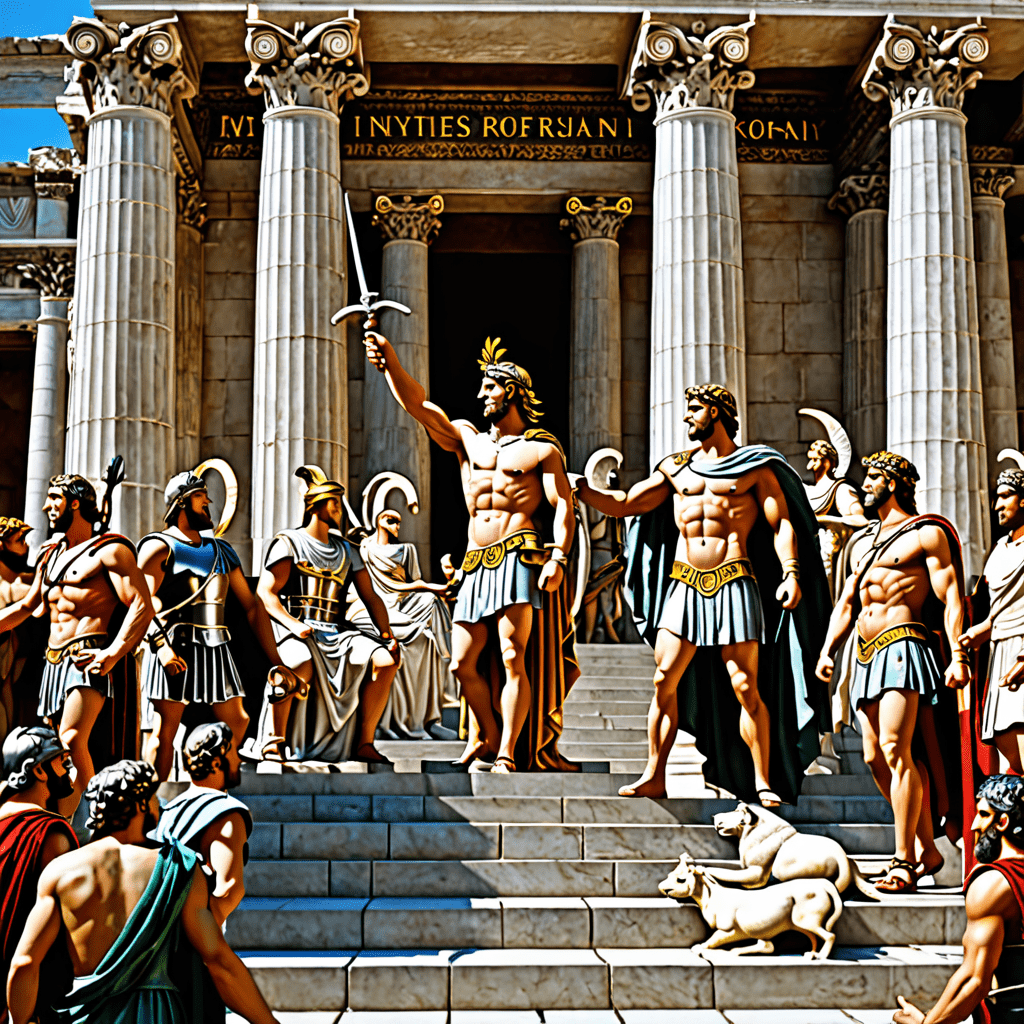The Myth of the God Khnum in Egyptian Mythology
Who is Khnum in Egyptian Mythology?
Khnum is an ancient Egyptian deity known as the god of creation, water, and fertility. He is often depicted with a ram’s head and is associated with the annual flooding of the Nile River, which was crucial for the fertility of the land and the sustenance of the Egyptian people.
Role of Khnum in Egyptian Beliefs
Khnum was believed to have created the first living beings on his potter’s wheel from clay or mud from the banks of the Nile. He was seen as a creator god who shaped the physical forms of both humans and gods. Khnum was also considered a protective deity, particularly of the source of the Nile and its waters.
Mythological Stories of Khnum
One of the most famous stories involving Khnum is the myth of his role in creating the ba, the part of the soul that represents a person’s personality. It was believed that Khnum would create each person’s ba on his potter’s wheel before placing it in their body at birth.
Legacy of Khnum
Despite having a lesser-known status compared to other Egyptian gods like Ra or Osiris, Khnum played a significant role in the mythological beliefs of ancient Egypt. His association with creation, water, and fertility highlights his importance in the agricultural society of Egypt.
FAQs about the Myth of the God Khnum in Egyptian Mythology
Who is Khnum in Egyptian mythology?
Khnum is an ancient Egyptian deity associated with the Nile River and the creation of human beings. He is depicted as a ram-headed god and revered for his role in shaping the bodies and destinies of individuals.
What is Khnum known for?
Khnum is primarily known for his craftsmanship in creating human bodies on a potter’s wheel. He is believed to mold each person’s physical form and determine their unique characteristics before they are born into the world.
Which ancient Egyptian beliefs are associated with Khnum?
Ancient Egyptians believed that Khnum controlled the annual flooding of the Nile, which was vital for the fertility of the land. He was also seen as a protective deity, safeguarding people’s lives and ensuring their well-being.
How was Khnum worshipped in ancient Egypt?
Khnum was worshipped through various rituals and offerings, particularly in the temples dedicated to him. People sought his blessings for fertility, creativity, and protection, often presenting pottery and other symbolic offerings in his honor.



